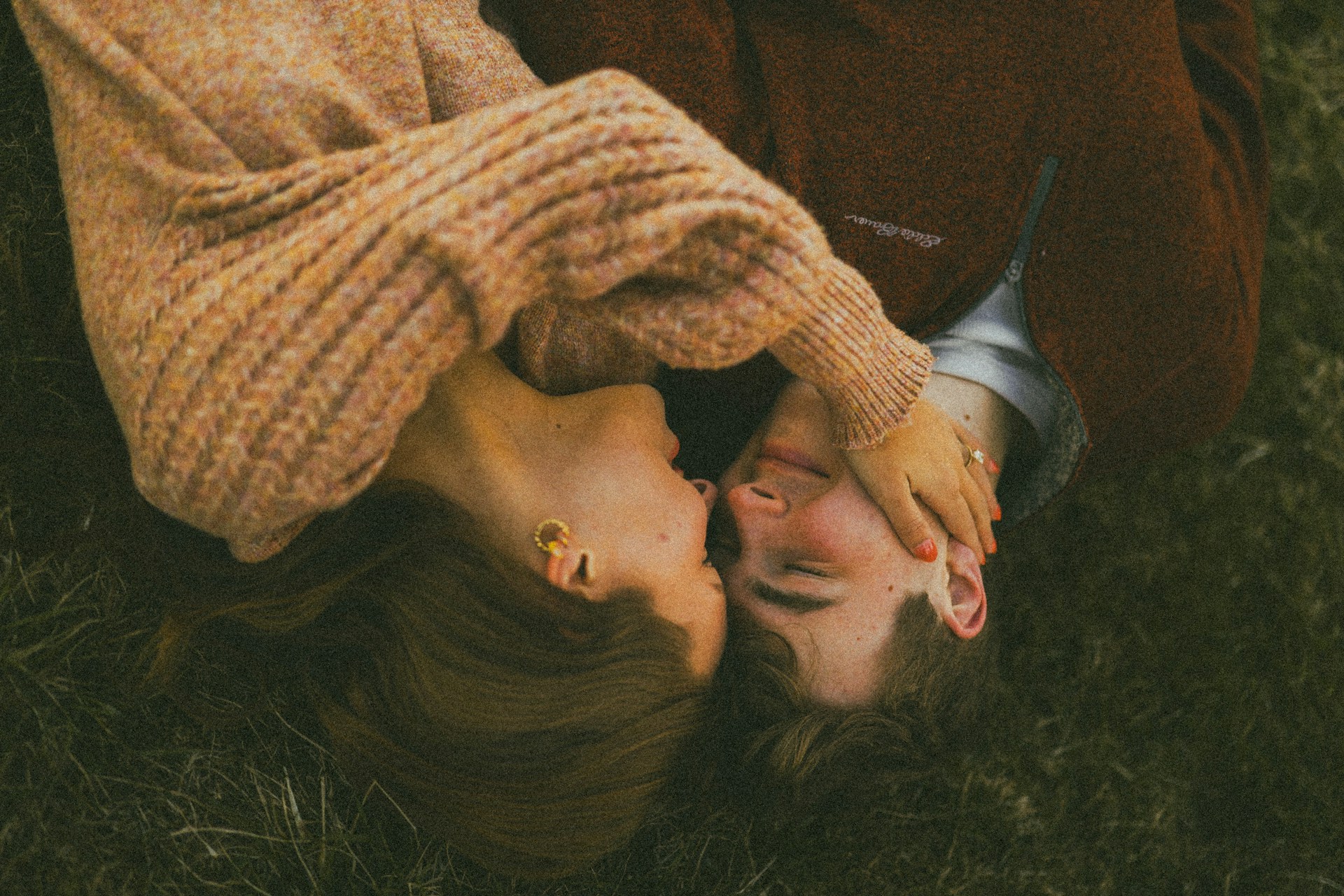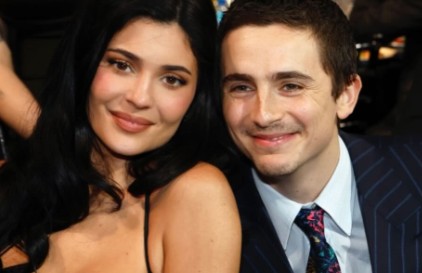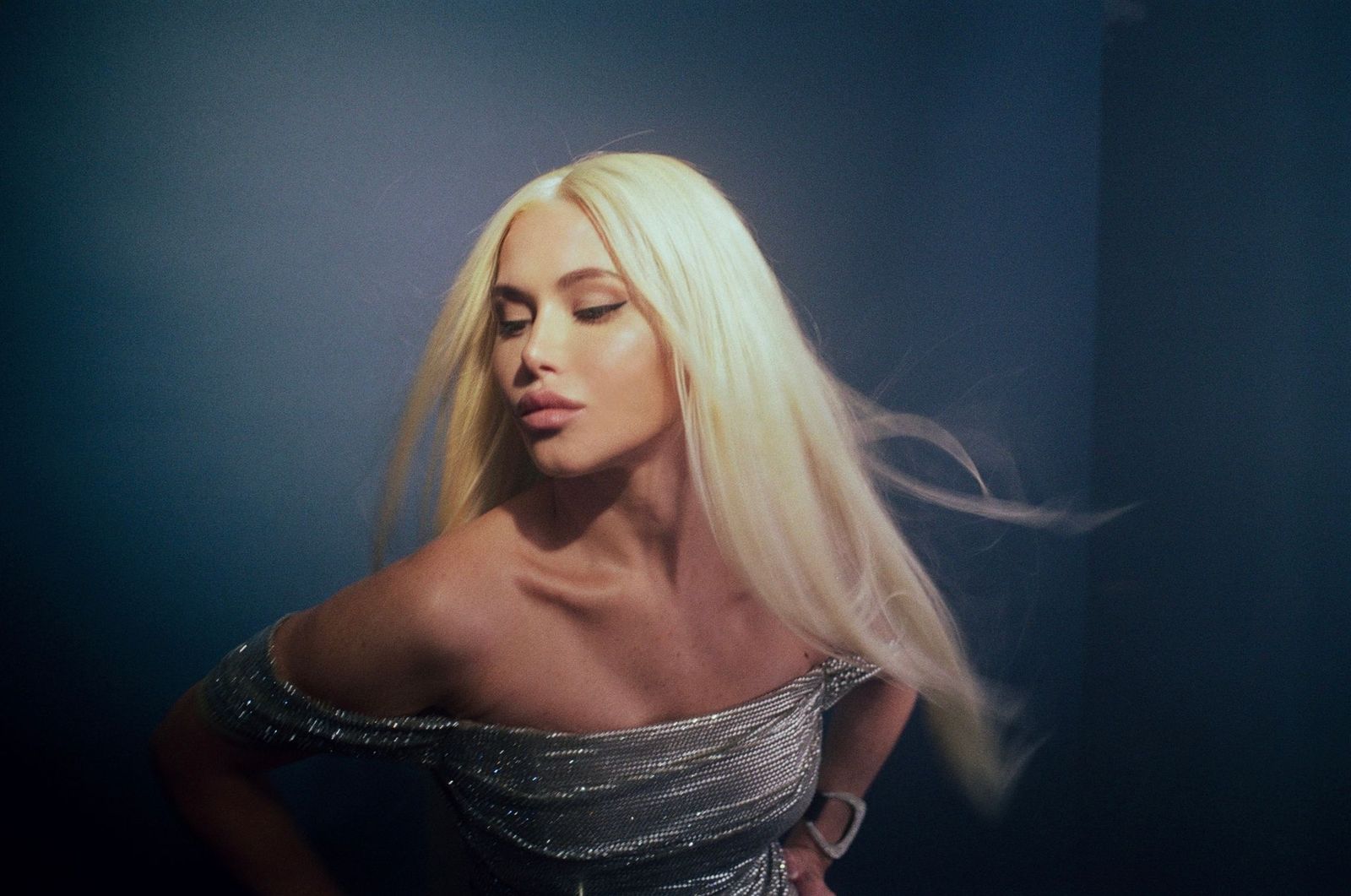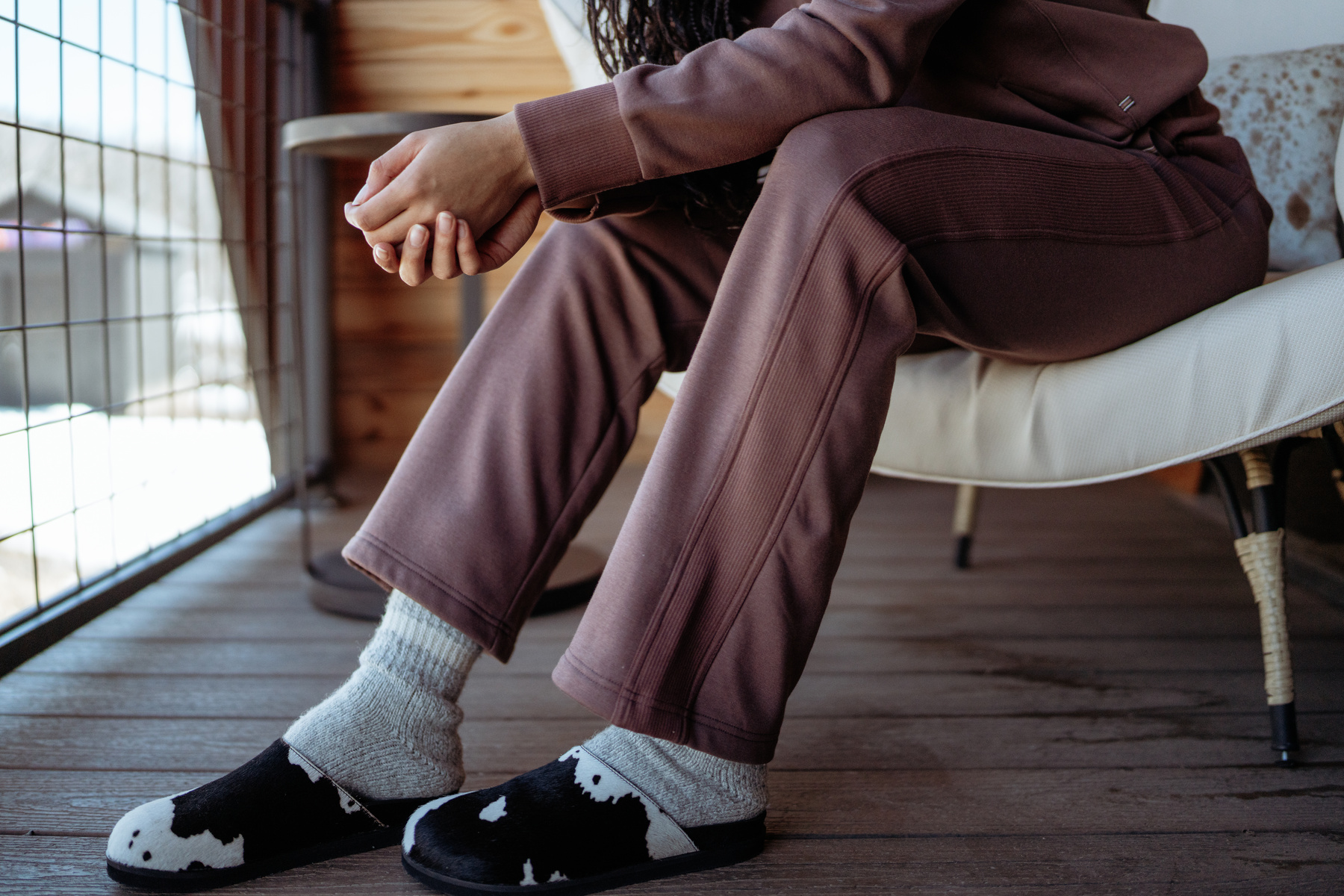Arts
INTERVIEW | Mat Kearney Showcases Stylistic Rebirth with ‘CRAZYTALK’
03 May, 18
The singer-songwriter defies sonic logic on his fifth studio set.
“Everything changes” is a simple sentiment but a profound one prolific singer-songwriter Mat Kearney weaves throughout much of his new album, CRAZYTALK, out this Friday (May 4). “Growing up breaks you down,” he sings, his wordplay, as we’ve come to appreciate through his impressive career so far, is brought to new light across a gliding EDM fusion, thanks in large part to pop up and comer filous. “Changes” is a light snack but packs a 1-2 punch, as it unravels a close friend of Kearney’s story of lonesomeness and moving on. Within this sonic landscape. Kearney’s bite is more ferocious than usual, allowing the song to really hit the listener squarely in the chest.
That’s the general appeal of CRAZYTALK, a record brimming with flourishes of the Nashville scene, from the folksiness of “Wanted Man” to the tropical jangle of “Face to Face” to the odd-ball drip-drop of “Fortress.” Beneath all the layers, there is still the charming Kearney fans have come to love ⎯⎯ but now that he’s free of Republic Records, he has found a new identity. He pushes and pulls genre tags at his will, often casting downcast tear-jerkers in a jaunty, chewy mold. “The ball will drop in New York soon / And everyone is singing along, yeah / All the lights, they shine for you,” he sings, a sweet, reggae-flavored lullaby called “Don’t Cry for Me,” which he has dedicated to his daughter. The song chronicles the cold winter night she was born and Kearney and his wife soldiered “two feet of snow,” he jokes, an obvious exaggeration, to make it back to their nestled and warm Nashville homestead.
It’s one of many truly moving moments on the album ⎯⎯ and even Kearney finds this particular mix a bit weird. “I love that song, but it’s very dividing,” he tells Popdust over a recent phone call. “It’s definitely not racing up the charts on Spotify, but I love the lyrics. It’s this wisdom from someone who’s done some things, and he’s like, ‘this is my story,’ especially about leaving the hospital. There was a blizzard that night, and it was a beautiful storm. They give you this child, and you put them in your car in this carseat you don’t even know how to use. You drive away. It’s one of the craziest experiences I’ve ever been through.”
Kearney is 39. He’s lived. He’s loved. He’s been through it all. And that experience soaks the album. From the youthful, nostalgic glow of giddy opener “Better Than I Used to Be” (“We used to be kids in the backseat wasting time,” he sings, setting the album’s hopeful edge) to the bounce of “Money” to “I Can’t Wait for You to Get Here,” Kearney’s heart is etched into ever word, syllable, stylistic choice. It’s so innately him but also lives in the ether, stretching his limits and testing his instincts. CRAZYTALK is his most ambitious project to-date but it is as comfortably familiar as grandma’s Christmas sweater.
Below, Kearney retraces his steps the past year or so and discusses finding his creative feet again, how he turned to EDM for inspiration and the album’s core intentions.
How did having a child and then losing someone impact you, personally and professionally?
As a family, we lost someone really dear to us. We found out we were pregnant the next day. The album title ‘CRAZYTALK’ really became…well, what are we dealing with? Life is short. What do I really want to do? Let’s just not make a record because that’s what I’m supposed to do. What am I really passionate about? I had to reevaluate my goals and what really inspires me.
You also left Republic by choice, a rather bold move in this business.
A friend asked, “What’s the dream for this record?” I said, “The CRAZYTALK dream would be this: I’d love to collaborate with some artists, get out of my deal and start my own record label. And I’d love to play some really crazy rooms.” And he said, “I love [CRAZYTALK] as a title.” That fit exactly what we were talking about.
Was it a tough decision to ultimately leave your label home of four albums?
Yeah. Initially, we were fighting to re-negotiate the deal. I’ve been around long enough that I was on this really old record deal. So, we could have stayed because that’s all I’ve known. The more my management started talking about it, we were just like, “Why? We don’t want to do this. You built a fan base. You should own this. You don’t need someone loaning you money to make a record.” I’m producing a lot of it on my own. I said, “Why don’t we just do this ourselves?” We’ve got great partners at iTunes and Spotify. It just became this “let’s go for it!” kind of thing.
The new album, CRAZYTALK, is still very much rooted in your signature approach but you play around with styles in ways you haven’t before. You mentioned in an interview with AXS that you were listening to a ton of EDM and tropical house during the making of it. How did that inspire the choices you made here?
I was listening to a lot of indie electronic music. filous is an artist that I just really love. So, he worked on the record. Also Odesza and those kinds of bands. I thought it was just really interesting, the way they were taking the form of an EDM song but then doing really unique things with it. That works for really great songwriting. I was like, “What if you take Nashville, timeless songwriting and put it with this kind of structure that has a story moment and then a visceral moment, a drop, as the kids say.” That was an interesting exploration to see what we could come up with.
What was the actual process for some of these songs? Did you start with just a piano or guitar and zip up the production with the house and EDM textures later on?
Yeah, usually. Sometimes, there’s a track you create and then you write to it. But then sometimes, it was me sitting in a room with a guitar and friends and doing a more traditional songwriting co-write where everybody shows up at 10 am with their guitars and you write something. “Whattya going through?” That’s a very Nashville thing. People do that five days a week. Then, I would take the songs away and explore sounds on my own or send them to friends and work with them. “Memorize” was a piano and vocal, and I think the bass line we had recorded in the studio. I was singing the melody and then it was pitched weird. There wasn’t much. It was then fleshed out. The song “Changes” was collaborative between me, the writers and filous. We worked on different stuff as the song was taking shape.
One of the standouts is “Face to Face,” which seems to carry such an important message.
My friend has a trailer in Malibu. I didn’t know these things existed, but they’re million dollar trailers. You live in a trailer park, but it’s in Malibu. It’s really expensive. [Laughs] I was just looking at the ocean with a ukulele that I was traveling with. I didn’t have a guitar with me. I started singing that chorus. It’s that image of storms showering on mountains of mistakes being washed out into the ocean of grace and love. That was such a beautiful, weird image. It became a gospel song, almost like I prayer, I guess. It was me writing to my insecurities and giving them a voice and then coming up with an answer to them. It was one of those songs that happened really quickly. I have the notes on the back of like a lawyer pamphlet that was sitting somewhere, and I sort of scribbled all the lyrics. They came in one sitting.
You touched briefly on “Changes,” which seems to serve as the backbone of the album in a lot of ways. How did the concept come together?
I do some co-writing trips to LA sometimes. I was sitting with these two guys named The Blueprint [Ryan Bailey, Ryan Ogren] who are really talented writers. They had the line “everything changes…” [sings], so we literally tried all day and didn’t know whether it was good or bad or both. It felt somber and melancholy but also very rich and emotional. I wrote it to my best friend about something he was going through. I worked on the second verse for a long time, and it fought. But I knew I really believed in it. filous obviously brings that EDM thing, but we used Bruce Hornsby-sounding instruments and 12-string guitars. The sounds were very outside the box for that genre.
Earlier, you spoke about the Nashville way of songwriting. In “Wanted Man,” there is definitely an intonation of a more organic, rooted presence.
That was very Nashville. There’s pedal steel in there. It was a tip of the hat. It was a play on words, too. You know, Billy the Kid, as a wanted man, and being in a relationship and a wanted man. That’s me on the harmonica ripping up a solo. [Laughs] I used to play harmonica a lot more but haven’t in a while. Maybe, I need to break it out more. The song fell out of the sky. Nick had the title, and I picked up the guitar and just started playing. I know it’s the “cute” moment on the record, but I still really enjoy listening to it.
“Fortress” goes even further to push the boundaries with this drip-like quality in the production.
That’s my favorite song on the record that I don’t know if anyone’s gonna like. It is way out there. It’s like a triplet. I worked with this really talented artist named Ruslan [Odnoralov], and he works with all the really cool indie Nashville electronic artists. He’s very much in that scene. It’s definitely underground, but it’s building and growing. He’s the most talented kid, and he had that title “Fortress.” The drop and weird sounds just kind of happened. It was like, “What are the weirdest things we can mash together?” The song is very songwriter-y but is the most indie-EDM leaning on the album. I was walking through my yard by these evergreen trees, and I was like “evergreens, evergreens.” I thought, “That’s a funny line that Kanye would start a rap with.” So, I was riffing on the word “evergreen” and the whole rap became based around that.
What is the arc of the album?
I love that we’ve been able to roll out half the album out on Spotify and iTunes. And then, there’s the other half coming. I was nervous about that, about giving away a lot of music. But it’s been really cool to keep delivering songs and building up to the back half, which has a lot of the storytelling and the meat of the record. I wanted equal parts of really beautiful Nashville songwriting and using the songwriting community, and I also wanted it to be moving and emotional and something you could listen to on vacation and relax to. I feel like I’ve really accomplished all that.
What is your favorite lyric on the album?
I guess it would be: “I never have we’d have so much to take for granted.” I really believe in that lyric. That song, “Better Than I Used to Be,” lyrically, is one of the more flawless I think that I’ve done. I hope that’s not too arrogant to say. [Laughs]
Did you have reservations about how to approach releasing a new album in 2018 when the landscape is so different?
100 percent. That has to do with conversations I had with my management and Big Loud. We started exploring what to do. We couldn’t just put out an album. That’s super hard to make work these days. It’s become much more like the 1950s where it is very single driven and each song has its own life. This felt like a good hybrid way of doing it. We were still gonna deliver my core fans an album the way they’re used to, but we wanted to have five or six moments of attention with new song releases.
It’s the wild, wild west. You can’t do it like you used to do it. When we started, we’d spend hundreds of thousands of dollars making a record for almost a year, and then, I’d tour for three years. The whole cycle would be four years. It just doesn’t work like that. Everybody is way more agile and doing way more creative, unique ideas of releasing albums. It’s really inspiring and gets me super excited about the future of music.
As a parent now, do you sleep?
No, especially on tour. [Laughs] We’re coming out of that phase, but it’s pretty raw, man. You live this musician’s life one way. You get up at nine or 10, and you do whatever you want until you go to a session around lunch. It was pretty dramatic to one day have this creature come, and she’s like “I get up at 6am.” And you’re like, “I guess I get up at 6 am now.” [Laughs]
You brought your daughter on tour with you. Was that a big conversation to have with your wife?
Well, we’re lucky enough that we have accommodations where we can all travel as a family when we want to. My wife got sick of smelly boys on the bus, so they’d go home for a little while. It’s how we’ve always made it work. We make it flexible. If my wife wakes up one morning and says “I want to see you,” she jumps on a plane and comes. Or if she wants to go home, she can leave that day. [Laughs] Having that freedom makes it feel not so daunting.
What was your favorite moment on this tour?
Denver was really special. We’ve always done really well there. I don’t know if it is the altitude, but I always get really excited for the show. It was the first show my daughter had been at. I didn’t know it would hit me as much as it did. You work so hard on a career and albums and writing music you believe in. Having people to share it with is really special. There’s this whole new human that’s sharing this experience with me now. It caught me off guard. I got really emotional about it.
I also really enjoyed playing the Ryman in Nashville. I used to work at the Starbucks two blocks down from there. That was my last job. It’s always emotional to play there because you’re literally living out a picture of the dream. It gives me goosebumps.
Follow Mat Kearney on Twitter | Facebook | Instagram
Jason Scott is a freelance music journalist with bylines in Billboard, PopCrush, Ladygunn, Greatist, AXS, Uproxx, Paste and many others. Follow him on Twitter.
POP⚡DUST | Read More…
INTERVIEW | More Giraffes Dish Out Jurassic-Sized Bops, Eye Debut EP
INTERVIEW | Jukebox the Ghost Reminisces About Queen & Getting Older
INTERVIEW | Shana Halligan Undergoes Tremendous Transformation on ‘The Voice’













